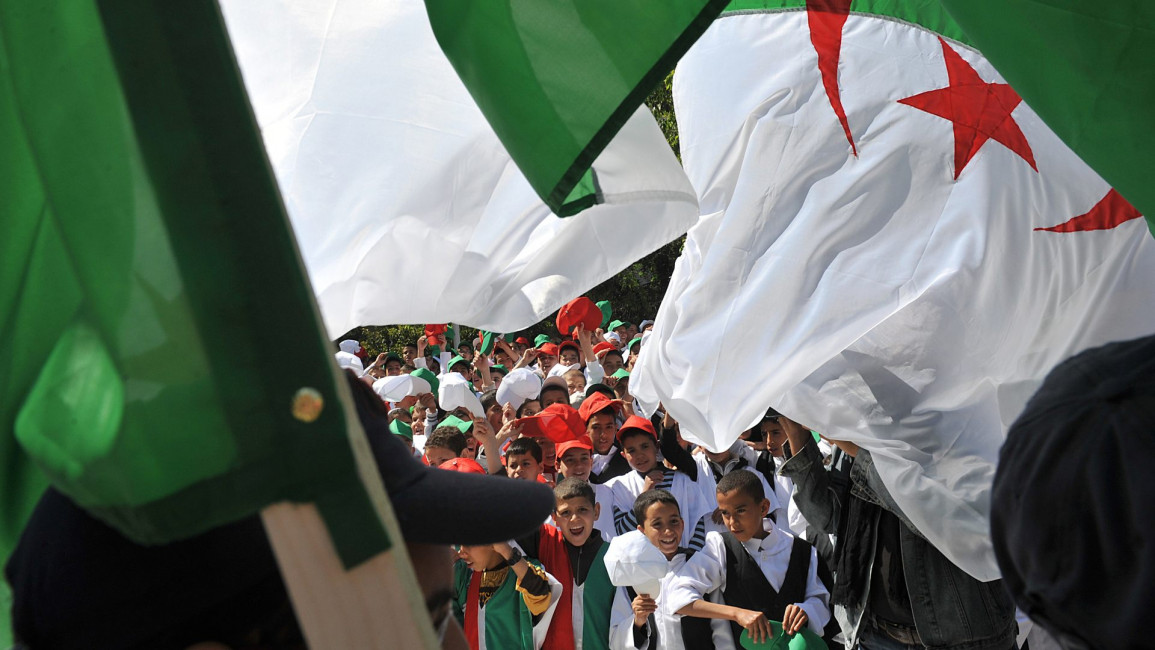Algeria remembers mass killings under French rule
Algeria on Saturday honours thousands killed by French forces in 1945, as the North African country waits for Paris to apologise for its colonial-era crimes.
Pro-independence rioting following a demonstration in the final months of World War II prompted the massacre of thousands of mostly unarmed Muslim civilians, a turning point in Algeria's long independence struggle.
On May 8, 1945, thousands had rallied in Setif as allied powers, including colonial ruler France, marked a hard-won victory in Europe over Nazi Germany.
"Long live the allied victory," demonstrators shouted.
But the festive gathering soon turned into a demonstration for an end to colonial rule, with cries of "Long live independent Algeria!"
That was a provocation for French police, incensed by the appearance, for the first time, of Algerian flags.
As they ordered the removal of the green and white standards, scuffles broke out.
Demonstrator Bouzid Saal, 22, refused to drop his flag - so a French policeman shot him dead.
Outrage tore through the massive crowd.
Read more: Lessons for Palestine from a female freedom fighter's Algiers memoir
The ensuing riots and revenge attacks on Europeans sparked a wave of repression by French authorities that left as many as 45,000 dead, according to Algerian official figures.
French historians put the toll at up to 20,000, including 86 European civilians and 16 soldiers.
The killings would have a transformative impact on the nascent anti-colonial movement. A full-blown independence war broke out nine years later, finally leading to the country's independence in 1962.
|
|
President Abdelmadjid Tebboune, who will lead the first national day of remembrance for the killings on Saturday, has described them as "crimes against humanity".
Authorities will hold a series of events in Setif, 300 kilometres (190 miles) east of Algiers, including a march to the spot where Saal was killed.
Fortnight of retribution
The French launched a 15-day campaign of violence, targeting Setif and the surrounding rural region, bombing villages and hamlets indiscriminately.
General Raymond Duval led French authorities' ruthless clampdown, imposing martial law and a curfew on a patch of territory stretching from Setif to the sea, 50 kilometres (30 miles) north.
Nationalist leaders were detained on pure suspicion, and villages suspected of harbouring separatists were strafed by the air force and set ablaze.
Women, children and the elderly were massacred and some 44 villages were destroyed in 15 days of retribution.
Executions continued until November 1945, and some 4,000 people were arrested.
"I have secured you peace for 10 years," General Duval warned the colonial government in a letter.
"If France does nothing, it will all happen again, only next time it will be worse and may well be irreparable."
Still sensitive, decades on
Setif remains a highly sensitive episode for Algerians, as well as for some in France.
|
|
Paris only officially recognised it in 2005 when the ambassador in Algiers called the massacres "an inexcusable tragedy".
Five years later the bloodshed received some rare attention on the big screen, with the controversial Oscar-nominated film "Outside the Law".
Rachid Bouchareb's movie ignited much soul-searching in France - but was also bitterly condemned by the far right.
Riot police had to hold back angry protesters when it was screened at the Cannes Film Festival.
The crowd, which included military veterans, was furious that French public funding had gone to a movie they claimed falsified history.
But France has since made moves to recognise crimes committed during its 132-year occupation of Algeria.
In March, President Emmanuel Macron admitted "in the name of France" that lawyer and independence figure Ali Boumendjel had been detained, tortured and killed by French forces who then covered his death up as a suicide.
Last year, Macron tasked French historian Benjamin Stora to assess how France has dealt with its colonial legacy, and urged officials to accelerate the opening of French archives on the Algerian war.
Released in January, the Stora report made several recommendations, including the creation of a "memory and truth commission" to hear testimony from those who suffered during the war.
It did not, however, suggest a formal state apology. Macron has offered neither "repentance nor apologies" but rather "symbolic acts" of reconciliation.
Algeria has dismissed the report as "not objective", and has not moved to reciprocate Macron's steps.
It did however welcome his admission of French responsibility for Boumendjel's death.
Follow us on Facebook, Twitter and Instagram to stay connected


![Minnesota Tim Walz is working to court Muslim voters. [Getty]](/sites/default/files/styles/image_684x385/public/2169747529.jpeg?h=a5f2f23a&itok=b63Wif2V)




![Debris near Rafic Hariri International Airport [Getty]](/sites/default/files/styles/image_330x185/public/2176162423.jpeg?h=a5f2f23a&itok=MCSK9mkM)
![An Israeli air strike on Jabalia killed teenage journalist Hassan Hamad [Screengrab/X]](/sites/default/files/styles/image_330x185/public/2024-10/hassan%20hamad1.jpg?h=c12e0b96&itok=Rd_dyCVp)
